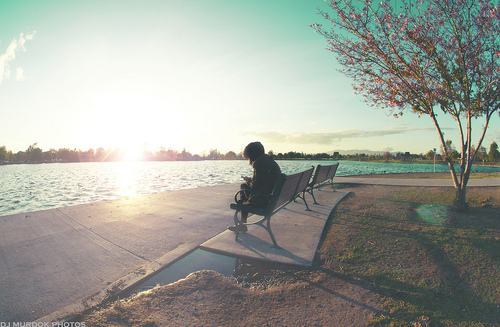
英语运动格言
1. The Olympic motto is Higher, Faster, Stronger.奥林匹克的格言是“更高,更快,更强”。
2. The most important thing in the Olympic Games is not to win but to participate.奥林匹克运动会重在参与而不是取胜3. Taking drugs before the Games is considered cheating and against sportsmanship.赛前服用药物被视为作弊,且违背运动精神。
4. The Olympic oath encourages athletes, coaches, and officials to observe the rules and to follow the spirit of sportsmanship.奥运会誓言鼓励运动员、教练员和裁判员遵守规则,发扬体育精神。
5. Mutual understanding, friendship, unity and fair play.相互了解、友谊、团结和公平竞争。
6. The Olympic Games help promote a better and more peaceful world.奥林匹克运动会有助于实现一个更美好、更安宁的世界。
7. The most important thing in the Games is not the triumph but the struggle; not to have conquered but to have fought well.比赛中最重要的不是胜利,而是奋斗;不是征服,而是奋力拼搏。
World record Record holder纪录创造者8. By undergoing the stress and strain of tough competition, the athletes grow in strength, endurance and discipline.在经历了激烈竞争的压力与紧张之后,运动员在力量、耐力和纪律方面都有提高。
9. The athletes must learn to respect and to cooperate with people from many nations during the Games.在比赛中,运动员必须学会尊重并与来自许多国家的人们合作。
10. After the hard training of a life time, every athlete deserves a medal in the Games, no matter whether he won or not.经过长时间的艰苦训练,在奥运会上无论成败,每个运动员都应获得一枚奖牌。
11. Team-work is essential to a football match.足球比赛最重要的是团队合作。
12. My victory owes to my coach’s patient instructions and the support from my family and friends.我的胜利应归功于教练耐心的指导以及家人和朋友的支持。
13. The lighting and extinguishing of the Olympic Flame symbolizes the opening and closing of the Olympics.奥运圣火的点燃与熄灭象征着奥运会的开幕与闭幕。
14. The purpose of passing the Olympic torch by way of relay was to spread the Olympic spirit and make the seeds of peace and friendship root, grow, bloom and bear fruits in more countries.用接力跑的方式传递圣火,目的在于传播奥林匹克精神,使和平和友谊的种子在更多的国家扎根、生长、开花和结果。
15. Baron de Coubertin drafted the athlete’s vows himself.德•顾拜旦爵士亲自起草了运动员宣誓词。
16. The five rings represent the close unity and friendly meeting at the Olympics between athletes from five continents.五环相连象征着五大洲的运动员紧密团结及在奥运会上友好相聚。
17. The most important thing is to participate.重在参18. The Games have many of the qualities that the ancient Greeks were trying to encourage, all those centuries ago.奥运会展示了多个世纪之前的古希腊人试图提倡的许多品质。
1.What do the five interlocked rings stand for?(奥运的五环标志是什么含义?)Africa, American, Asia, Australia and Europe.\\\/the five continents.(非洲,美洲,亚洲,大洋州和欧洲\\\/五大洲)2.What is the most important thing in the Olympic Games?(奥林匹克运动会的信条是什么
)“not to win but to take part”(重要的不是取胜,而是参与)3.What is the Olympic Spirit?什么是奥运精神?The Olympic Spirit is the spirit of mutual understanding, friendship, solidarity and fair play. (奥运精神是:理解, 友爱, 团结和公平)英语名人名言:体育SportsThe best defense is a good offense. —— Anonymous I skate to where the puck is going to be, not to where it has been. —— Wayne Gretzky People think we make $3 million and $4 million a year. They don't realize that most of us only make $500,000. —— Pete Incaviglia, baseball player, 1990 If God wanted women to understand men, football would never have been created. —— Seen on a bumper sticker The reason most people play golf is to wear clothes they would not be caught dead in otherwise. —— Roger Simon When the going gets weird, the weird turn pro. —— Hunter S. Thompson Golf is a good walk spoiled. —— Mark Twain Football incorporates the two worst elements of American society: violence punctuated by committee meetings. —— George F. Will, journalist, political commentator, 1994 Books had instant replay long before televised sports. —— Bern Williams There's a fine line between fishing and standing on the shore like an idiot. —— Steven Wright
奥林匹克运动会的格言是什么
奥林匹克格言(Olympic Motto),又称奥林匹号或奥林匹克座右铭,是奥林匹克运旨之一内容是:“更快、更高、更强”(英文:“Faster,Higher,Stronger”,拉丁文:“Citius,Altius,Fortius”)。
“更快、更高、更强。
”这一格言是亨利·马丁·迪东提出的。
迪东是顾拜旦的好友。
1891年他在巴黎创办了一所体育学校。
1895年他把上述格言作为该校的校训。
顾拜旦对此非常赞赏,也得到当时国际奥委会委员们的称道。
以后经顾拜旦提议,并在1913年得到国际奥委会的正式批准,将上述格言正式写入《奥林匹克宪章》。
1920年在第6次国际奥林匹克代表大会上又通过了把“更快、更高、更强”作为国际奥林匹克委员会会徽构成部分的决定,这一格言便正式成为奥林匹克标志的一部分。
关于运动的英语格言(急需)
all job and no play makes jack a dull boy
奥林匹克运动会历史(英文)
History of the Olympic Games Pindar, the Greek poet wrote in the 5th century BC:As in the daytime there is no star in the sky warmer and brighter than the sun, likewise there is no competition greater than the Olympic Games. According to historic records, the first ancient Olympic Games can be traced back to 776 BC. They were dedicated to the Olympian Gods and were staged on the ancient plains of Olympia. Initially they had a religious character and combined a number of ancient sporting events, many of which were based on ancient Greek myths. The ancient Games actually occupied an important position in the life of the Greek ancestors. An Olympiad was a time unit, measuring the four-year interval between two Games. Participants came to compete from every corner of the Greek world aiming at the ultimate prize: an olive wreath and a heroic return to their city-states. But apart from the glorious victory, it was the Olympic values themselves which accorded special meaning to the Games: noble competition and the effort to combine body, will, and mind in a balanced whole. As the Games developed, so did a set of procedures such as a standardized schedule of events and the practice of the Olympic Truce. They continued for nearly 12 centuries, until Emperor Theodosius decreed, in 393 AD, that all such 'pagan cults' be banned. He asserted that the Games placed an excessive public focus on athletic and spiritual affairs. The games was abolished until the 19th Century. Intellectuals such as Evangelos Zappas and Demetrios Vikelas who believed in the spirit of noble contests and the Olympic ideals, lent their voices and efforts to the revival of the Olympic Games. However, it was French Baron Pierre de Coubertin who orchestrated the re-establishment of the Games, by advocating the marriage of sports and Greek classicism, leading the way to the first Modern Olympic Games in 1896. The Greek public embraced the revival, and joined the efforts to organize the Games. Any financial difficulties faced by the Greek state at the time, were met through the mobilization of people and benefactors alike. The marble renovation of the ancient Panathinaikon Stadium that hosted the first modern Games was financed by George Averoff, a Greek benefactor from Northern Greece. With the revival of the Olympic Games, a number of symbolic Olympic Traditions were also developed and established (i.e. the Olympic Anthem, the Olympic Creed, the Olympic Flag, the Olympic Flame and Torch). Over the years, the Olympic Games traveled to different countries and continents, and now finally in 2004, they returned to the country of their birth and the city of their revival for the hosting of the XXVIII Modern Olympic Games. 公元前五世纪的希腊抒情诗人品达曾写道:“正如在白天天空中没有星星比太阳更温暖,更明亮,同样,没有比奥运会更激烈的比赛。
据历史记载,第一届古代奥运会可以追溯到公元前776年,为纪念奥林匹亚神在奥林匹亚的古代平原上举行。
起初他们信仰宗教并综合了许多古代运动项目,其中很多都源于古希腊神话。
古代奥运会在古希腊人的生活中占据了很重要的地位。
奥运会每四年举行一届,来自希腊各地的参赛者参与角逐,目标就是最终奖赏:一个橄榄花圈和“英雄”般的返乡。
除去胜利的光荣,奥林匹克价值本身赋予了奥运会特殊的意义:高尚竞争,把身体、意志和精神平衡的结合于一体。
随着奥运会的发展,一系列程序,如标准化的项目时间表和奥林匹克休战的实践也在完善。
这样持续了近 12个世纪,直到西奥多斯大帝在公元393年颁布法令,取缔所有“异教徒”。
他宣称,奥运会使公众过于注意运动及精神。
18世纪,奥运会被废止。
知识分子们,如塞帕斯和维克拉斯,坚信高尚比赛的精神和奥林匹克理想,为复兴奥运会而努力奔波。
法国人顾拜旦通过提倡运动和希腊古典主义的结合,使奥运会复兴起来,为1896年第一届现代奥运会的举行铺平了道路。
希腊民众迎接了奥运会的复兴,并努力组织起了这次奥运会。
当时希腊政府所面临的资金难题,都被人民和捐助者所解决。
举行第一届现代奥运会的古潘那斯那康体育场,其大理石更新便是由来自希腊北部的捐助者艾沃奥夫资助的。
随着奥运会的复兴,形成了很多具有象征意义的奥运会传统,如奥林匹克 会歌、奥林匹克格言、奥林匹克旗、奥林匹克火焰和火炬。
经过许多年,奥运会旅行了许多不同的大陆和国家,今年,也就是2004年,她回到了自己的出生地,回到了当年复兴的城市,举行第 28届现代奥运会。
急跪求 :运动会口号英文+汉语,要原创最多两小时,各位天使大哥大姐们,帮帮忙啊
如鹰翱翔,如风飒爽
我心飞翔,梦永飞扬
英文:Soar like an eagle, as wind Sassou! My heart is flying, flying dreams forever!



